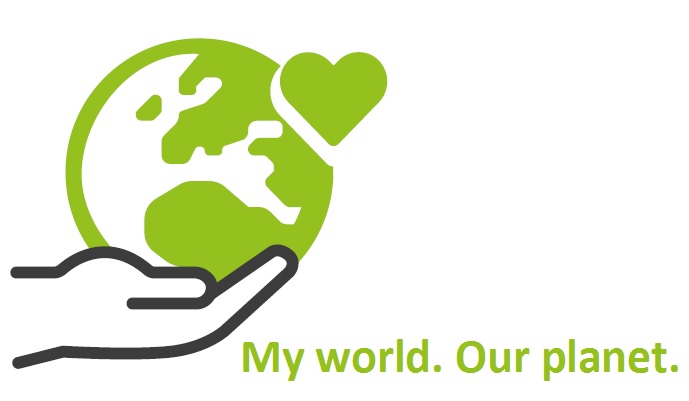March is Green Month 2022
We got together again with Pirate FM to celebrate
'Green Month' during March 2022
Cornwall’s carbon footprint is four million tonnes and needs to be seven times smaller to help Cornwall become carbon neutral. Every single person has a part to play in helping reduce that number.
Being Carbon Neutral means we don't create more carbon than the planet naturally absorbs. Too much carbon in the atmosphere contributes to Climate Change, which is already causing issues across the globe.
Where do our Carbon Emissions come from?
Most of Cornwall's carbon emissions come from road transport (23%), commercial and industrial buildings (22%), our homes (22%) and agriculture (21%). With the remainder coming from our waste, industrial processes, aviation and rail transport and marine navigation.
Cornwall’s carbon footprint is shrinking by about 2% a year and needs to shrink by 10% a year. So as well as everything that is already being done, there's still more that we need to do.
- 1 tonne of carbon = 4 double decker buses
- Cornwall’s carbon footprint is 4 million tonnes = 16 million double deckers!
- The average person has a 13 tonne carbon lifestyle = 52 double deckers
- The ideal carbon lifestyle is 5 tonnes = 20 double deckers.
Image: Carbon Visuals http://www.carbonvisuals.com
So what can we do?
The good news is, there's a lot we can do individually. Every single change will help get us get Cornwall closer to Carbon Neutrality.
Individuals can make a start by finding out what your carbon footprint is and how you can reduce it, with the WWF environmental footprint calculator
Businesses can access a range of ideas on what they can do. Ideas for general actions to take, or actions targeted to specific types of business can be found at the UK SME Climate Hub. If you want to understand the level of your emissions and to work out what actions to prioritise to make both reductions in carbon emissions and cost savings, the Carbon Trust Energy Management Self-assessment tools is a good place to start. The Carbon Trust Emissions Calculator can be used to review your energy, transport and process emissions. Also the RMS guide to reducing your carbon footprint and environmental impact has some useful resources.
Community groups can use the new IMPACT Community scale carbon calculator to develop a visual representation of your community's carbon footprint. The calculator can help you to spot the areas where your community climate change activities can make the biggest difference: https://impact-tool.org.uk/
Cornwall's County Choir performed Coldplay’s ‘Fix you’ at the Music for Youth Prom. The Choir chose the song to express how they feel about the Climate Emergency.
Where to start?
Sometimes it's easier to focus on one thing and then add to your changes as that becomes habit.
Start small and grow, for example you could...
- Try to take public transport, walk or cycle more instead of taking the car for journeys under three miles
- Switch your electricity and heating to a company that produces or uses only green energy and turn your thermostat down by one degree
- Shop locally for your food
- Mend things instead of throwing them away and keeping equipment, like your phone, for longer.
Young people in Truro and Penwith Colleges and Cornwal''s Eco Schools worked together to produce their own pledges for the planet.
The Imperial College London together with the Grantham Institute have drawn up a list of nine things you can do about Climate Change
Each of the pledges and lists above has a range of changes you can make - what will you choose, can you manage one or two or all of them?
More ideas
Take a look at our Green Month ideas below for suggestions on how you can help Climate Change every day and not just during March!
ê ê ê ê ê













